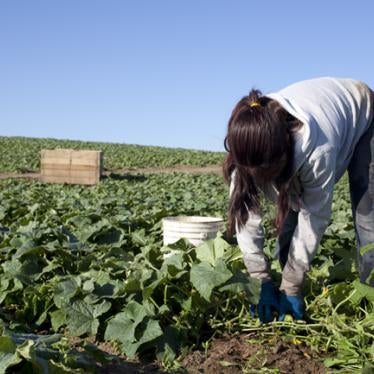Today, a network including some of the world’s biggest tobacco companies publicly pledged to end child labor in their supply chains. The move could help better protect children – who aren’t even old enough to buy cigarettes – from the hazards of working in tobacco fields.
This is the first time members of the tobacco industry have agreed jointly to abide by international labor law, which prohibits hazardous work by children under age 18, and sets a minimum age of 15 (14 in developing countries) for employment.
The pledge was announced by the Eliminating Child Labor in Tobacco (ECLT) Growing Foundation, an industry-supported initiative based in Geneva.
The impact of the new pledge could be especially significant in the United States, which has some of the most lax labor laws in the world when it comes to children working in agriculture. A Human Rights Watch report earlier this year found 12-year-old children working long hours in US tobacco fields. Many of the children we interviewed described headaches, dizziness, nausea and vomiting – all symptoms of nicotine poisoning, which happens when workers absorb nicotine through their skin. Under US law, children as young as 12 can work unlimited hours outside of school on a farm of any size with parental permission.
Under the new pledge, ECLT member companies will need to ensure that growers in their supply chains do not employ children under age 15. Although some companies and grower’s associations already have individual child labor policies that meet or exceed such standards, others do not.
The pledge is an important step forward, though it still has significant gaps. Most notably, it defers to national regulations – which are often inadequate – to identify hazardous work that should be prohibited for children under 18. In the US, for example, child labor laws and regulations make no special provisions for the unique hazards of handling tobacco, leaving children at risk of nicotine poisoning. This has to change.
The new pledge is progress, but both the tobacco industry and governments – including the US – can do more to protect children from nicotine poisoning and other dangers.








